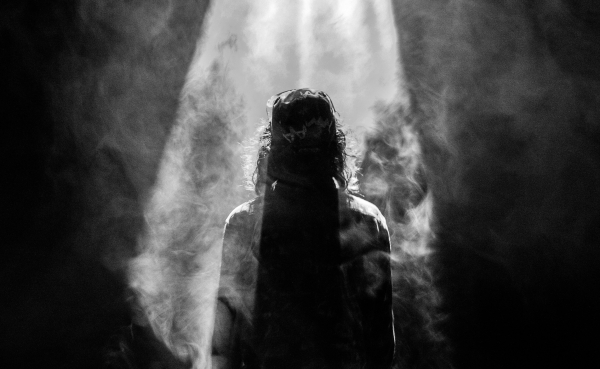The Charge of Discernment

Sermon for August 23, 2020
The Rev. Matthew David Morris
On Wednesday, a few of us gathered in a Zoom meeting to share our perspectives about the bishop candidates. It was only a few because I made the mistake of setting the privacy feature in such a way that you had to be registered as an “official user” of Zoom before being allowed into the room.
Many trying to get in could not, and instead of entry they encountered a series of extra steps; digital road blocks, if you will.
We all still live in the memory of Zoom rooms being “Zoombombed” by the internet-version of prank callers, and my chosen security measure was intended to help ensure that this wouldn’t happen. But, it ended up keeping people out.
My attempt at protection kept the church from participating in our collective discernment.
Those who hold my office of priest in Christ’s Church, those who a bishop has charged, using the same words that we hear Christ speak in today’s reading when he gives Peter the keys to the kingdom –
...whatever you bind on earth will be bound in heaven, and whatever you loose on earth will be loosed in heaven...
– we who hold this office have a unique responsibility to help facilitate discernment among the gathered body of the Church.
My little mistake wasn’t irredeemable. We will try to have this conversation again later in the week. I’m not bringing this up to preach about me, or about priests, or even bishops, though the office of bishop is certainly on everyone‘s minds right now.
I’m sharing this Zoom story because I think this week’s readings are inviting us to reflect on discernment: on how it begins; on what it is; on what it asks of each of us, whatever office we hold in the world or in the Church.
Disciples of Jesus are always in a process of discernment in the Gospel stories.
Once Jesus initiates their discernment, that discernment process is ongoing.
+
Now when Jesus came into the district of Portland, Oregon, the city of Roses, the city of protest and tear gas, the city of struggle to claim the narrative around what is justice and who is on the right side of history, he asked his disciples,
“Who do people say that the Son of Man is?” And they said, “Some say he’s a good teacher, but others a revolutionary, and still others a figure like the Buddha or Gandhi or countless other holy people from human history.”
He said to them, “But who do you say that I am?”
And in that moment, Jesus initiated in the Church in Portland a process of discernment.
+
Discernment, in a Christian context like our own, begins with the question, Who do you say that Jesus is?
The Church, built on the back of Peter, echoing the response of Peter, responds and has responded for generations–centuries–with the words, Jesus is the Christ, the Son of the living God.
And if parroting the words of Scripture were enough to make one a Christian, then discernment would not be necessary. Discipleship would be a process of memorization.
Learn the words. Say the words. Repeat.
In our Anglican tradition, with our prayer book language, the same can be said about liturgy.
If knowing the words of Rite I or Form A or any number of prayer book prayers were enough to make one a Christian, then discernment would not be necessary and discipleship would only ask that we learn the choreography of prayer book Episcopalianism.
But in my own journey as a Christian, I find again and again that not only is discernment an important part of Christian formation, but it is a nonnegotiable, essential feature of Christian identity.
Once Jesus initiates discernment, our discernment process is ongoing.
Discernment is messy the way that human bodies are messy. Discernment is fragile and delicate process the way that human bodies are fragile and made up of these delicate processes. Discernment in the Church is something that requires the participation of all members of Christ’s body.
This was the frustrating part of my Zoom snafu. One wrong step by a Church representative, and folks are left out of the room; left out of discernment.
Discernment begins with our own reflection on Peter’s response to Jesus, and it continues as we seek out understanding about our own vocation, our own role, our own work in the life of the Body of Christ.
In today’s Epistle, we read, “For as in one body we have many members, and not all the members have the same function, so we who are many, are one body in Christ, and individually we are members one of another.”
This is Paul’s vision of the Church: one body in Christ. And we, the members of this body, have to discern what unique gifts we are called to share; what unique responsibilities we are called to uphold for the benefit of one another.
We’re charged to discern what our gifts are and what their function is in the life of the Church. Paul lays out a number of gifts, and I love how they’re written in the Common English Bible translation:
If your gift is prophecy, you should prophesy in proportion to your faith.
If your gift is service, devote yourself to serving.
If your gift is teaching, devote yourself to teaching.
If your gift is encouragement, devote yourself to encouraging.
The one giving should do it with no strings attached.
The leader should lead with passion.
The one showing mercy should be cheerful.
Discernment happens when we seek to understand how God is equipping us, through our unique gifts, for the present moment.
So as a person who has been charged by his bishop, and the bishop before him, tracing back to Peter, who was charged by the one who initiated the discernment of every Christian around the world, in every generation, I charge you to spend time with the question Jesus posed about his identity.
Who do you say that Jesus is?
I charge you to be mindful of the moments when, in your attempts at protecting the sanctity of the faith, you inadvertently keep people from fully participating in the life of the Church.
Who have you left out of room? Who do you intentionally let in?
I charge you to spend time in discernment about your gifts and their function in the Body of Christ.
What has God assigned for you to do?
Because your cheerfulness, your passion, your generosity, your teaching, your service, your prophetic vision, for a truly just world – all of these gifts, and the myriad more that lie dormant in the hearts of Christians still waiting to embrace discernment are gifts intended to nourish the entire body of Christ. And, through the body of Christ, all of God’s creation.
It all begins with discernment.
And our discernment begins with Jesus.
Amen.
Photo by Mads Schmidt Rasmussen on Unsplash
